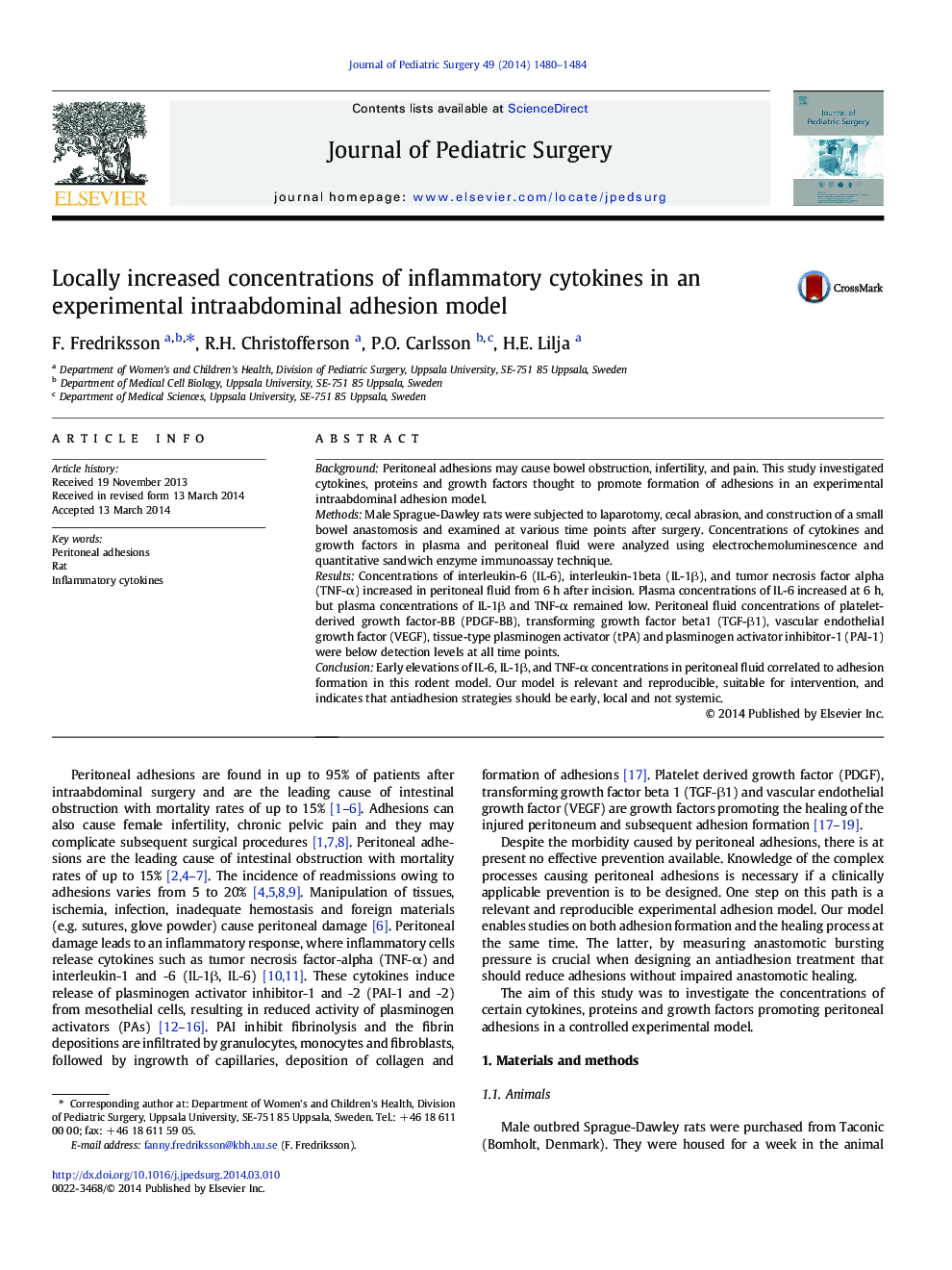| Article ID | Journal | Published Year | Pages | File Type |
|---|---|---|---|---|
| 4155517 | Journal of Pediatric Surgery | 2014 | 5 Pages |
BackgroundPeritoneal adhesions may cause bowel obstruction, infertility, and pain. This study investigated cytokines, proteins and growth factors thought to promote formation of adhesions in an experimental intraabdominal adhesion model.MethodsMale Sprague-Dawley rats were subjected to laparotomy, cecal abrasion, and construction of a small bowel anastomosis and examined at various time points after surgery. Concentrations of cytokines and growth factors in plasma and peritoneal fluid were analyzed using electrochemoluminescence and quantitative sandwich enzyme immunoassay technique.ResultsConcentrations of interleukin-6 (IL-6), interleukin-1beta (IL-1β), and tumor necrosis factor alpha (TNF-α) increased in peritoneal fluid from 6 h after incision. Plasma concentrations of IL-6 increased at 6 h, but plasma concentrations of IL-1β and TNF-α remained low. Peritoneal fluid concentrations of platelet-derived growth factor-BB (PDGF-BB), transforming growth factor beta1 (TGF-β1), vascular endothelial growth factor (VEGF), tissue-type plasminogen activator (tPA) and plasminogen activator inhibitor-1 (PAI-1) were below detection levels at all time points.ConclusionEarly elevations of IL-6, IL-1β, and TNF-α concentrations in peritoneal fluid correlated to adhesion formation in this rodent model. Our model is relevant and reproducible, suitable for intervention, and indicates that antiadhesion strategies should be early, local and not systemic.
